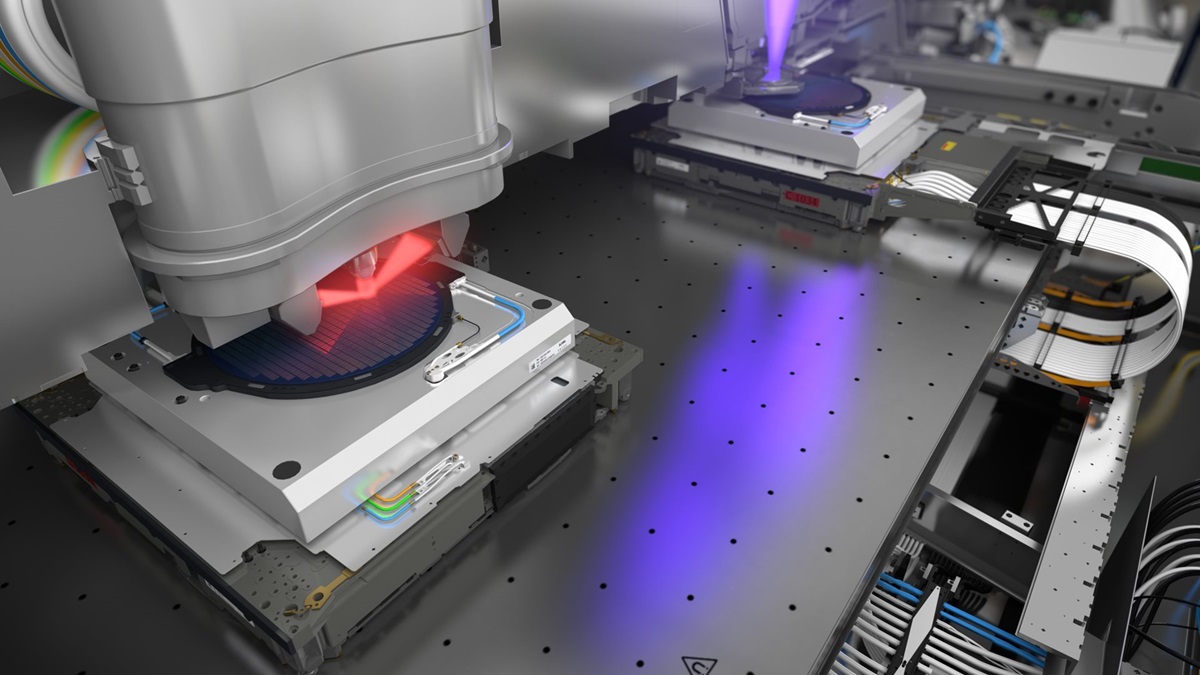 POLICY
POLICY
 POLICY
POLICY
 POLICY
POLICY
China looks set to suffer another blow in its ongoing trade war with the U.S. amid reports that it will be slapped with further restrictions on the sale of computer chipmaking equipment.
Reuters reported today that officials in the U.S. and in the Netherlands are working together to prevent China from getting its hands on certain advanced chipmaking tools from the Dutch firm ASML Holding N.V. The restrictions will be targeted at specific Chinese chip fabrication plants, and will also apply to other Dutch companies.
The Dutch government is expected to announce the new regulations on Friday, introducing a licensing requirement for the export of ASML’s second-best product line, namely its deep ultraviolet semiconductor or DUV equipment. Exports of ASML’s most advanced extreme ultraviolet lithography or EUV machines (pictured) are already restricted, and they have never been shipped to China.
In March, ASML said Dutch government regulations introduced last year prevent it from exporting to China its TWINSCAN NXT:2000i EUV machines, and more sophisticated versions of that model. With the new rules this week, ASML’s older DUV machines, such as the TWINSCAN NXT:1980Di, will also be prohibited from export to six Chinese chipmaking facilities. Those facilities will be identified in a new U.S. rule that prevents the export of foreign-made equipment containing U.S. parts, a person familiar with the matter told Reuters.
ASML is Europe’s largest chip equipment company thanks to its dominance in lithography, one of the central steps in the chipmaking process.
The new Dutch regulations are not expected to take effect immediately but will most likely come into force by September. Meanwhile, the new U.S. rule is expected to be announced in July, and will target a half-dozen chip manufacturing plants in China, including one operated by Semiconductor Manufacturing International Corp., the largest semiconductor maker in China. Under the new rules, the six plants will be required to apply for a license to export the Dutch equipment, and those licenses will likely be denied, Reuters said.
The rules will apply to ASML and other Dutch chipmaking equipment manufacturers because their systems contain multiple U.S. components.
Last October the U.S. government imposed import restrictions on shipments of American chipmaking tools from American firms such as Applied Materials Inc. and Lam Research Inc., citing national security concerns as the reason for the ban. Those restrictions were part of an ongoing effort by the U.S. to prevent advanced chip technology from being used by China’s military.
The U.S. government has since lobbied other countries to introduce similar curbs, and has had some success in that endeavor. Both the Netherlands and Japan said they would block the export of certain equipment to China in December.
China vehemently opposed the new rules, which also restrict its ability to import some kinds of advanced semiconductors, as well as the equipment required to make them. At the time, China’s commerce ministry warned that the restrictions hurt normal trade between the countries and threaten the stability of global supply chains.
Support our mission to keep content open and free by engaging with theCUBE community. Join theCUBE’s Alumni Trust Network, where technology leaders connect, share intelligence and create opportunities.
Founded by tech visionaries John Furrier and Dave Vellante, SiliconANGLE Media has built a dynamic ecosystem of industry-leading digital media brands that reach 15+ million elite tech professionals. Our new proprietary theCUBE AI Video Cloud is breaking ground in audience interaction, leveraging theCUBEai.com neural network to help technology companies make data-driven decisions and stay at the forefront of industry conversations.